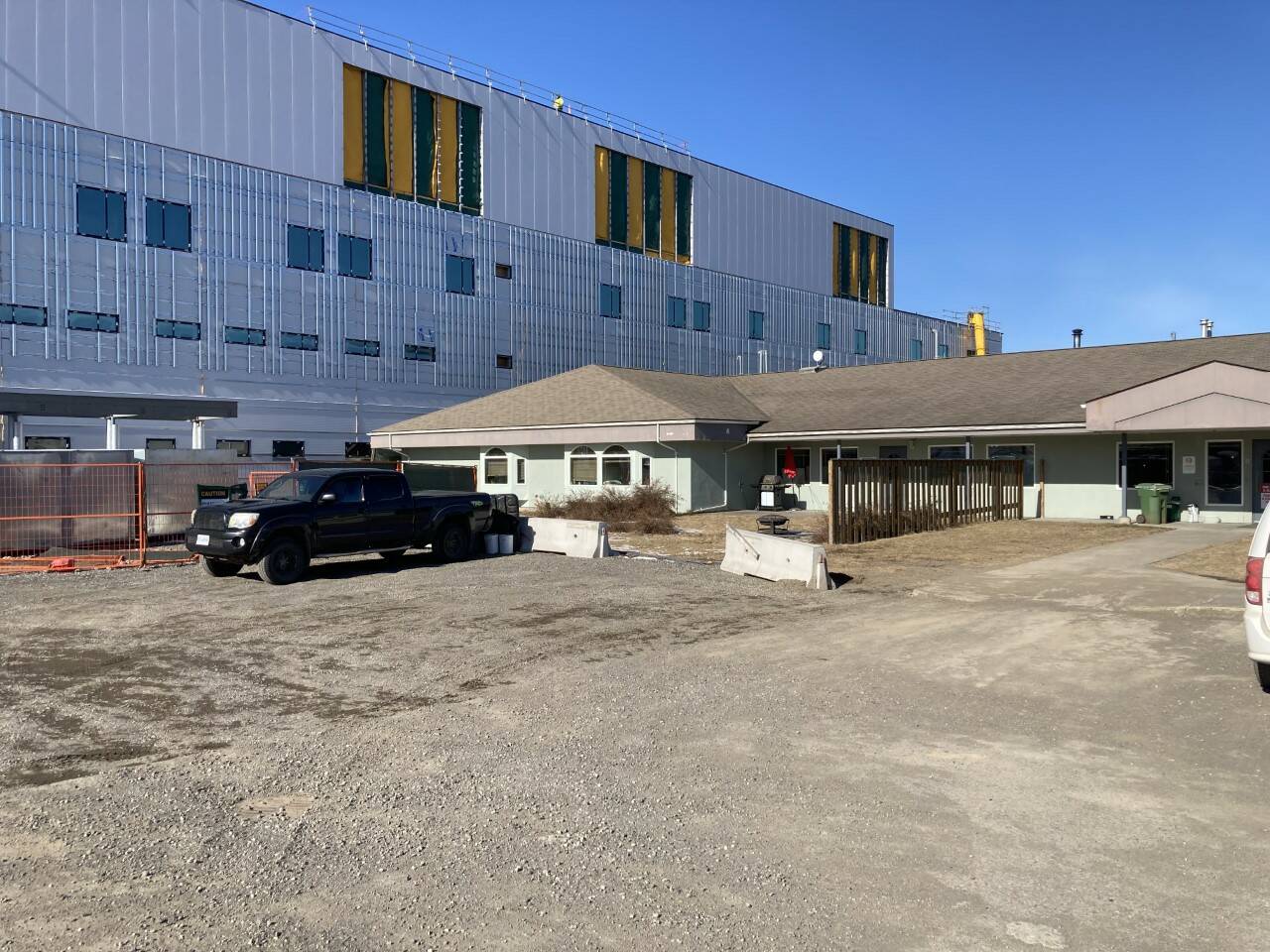The Northern Health Authority has closed the door on any attempt to save the current Seven Sisters mental health residence on the grounds of Mills Memorial Hospital, saying it must be demolished to make room for the new Mills Memorial structure now well underway.
It has also dismissed the idea of dismantling and moving the building to a new location as too expensive and something that would compromise its integrity.
“The existing Seven Sisters will be too close to the main and emergency room entrances and ambulance bay [of the new Mills] which would create traffic flow and safety issues, especially in the unlikely event of a mass casualty or building evacuation scenario,” added the health authority in a prepared statement.
The remarks follow on the local effort by the Skeena Valley Seniors Society to save the structure so that it could be used for another purpose once the new Seven Sisters, also underway on the Mills Memorial property, is finished late this year and patients and staff moved over.
The society is convinced a change in the parking configuration planned for the new Mills and a change in its entrance plans would allow the building to be saved.
Even if the building could be saved, Northern Health said renovating it for another user group would be expensive and require substantial work.
“The scope, schedule and design of the replacement project are under contract to PCL Constructors Westcoast. Opening the contract to change the design, delay the demolition, or move or disassemble the existing Seven Sisters would come with substantial cost and could delay the opening of the new Mills Memorial Hospital,” the Northern Health statement added.
Mayor Sean Bujtas and Councillor James Cordeiro backed up the Northern Health position on costs when Diana Penner from the Skeena Valley Seniors Society unsuccessfully appeared before council March 27 to ask for council support in saving the current Seven Sisters building.
Bujtas said the North West Regional Hospital District, which taxes northwestern residents to help pay for health-care facilities and equipment, successfully capped regional taxpayer contributions at $113.7 million or 30 per cent of the cost when construction was estimated to be in the $380 million range. Normally regional taxpayers cover 40 per cent of a capital project.
That cap has held despite a budget increase to $632.6 million so that the regional taxpayer contribution is now 18 per cent, Bujtas said.
“We’ve got a heck of a good deal on this hospital and I struggle to ask them to change the plans that were put in place years ago,” he added.
Cordeiro, who sat on the hospital district board with Bujtas during financing negotiations, said the potential cost opening the Mills Memorial construction contract to do something with the current Seven Sisters is “far, far more risky then that $2 million building is worth,” he said in referring to the original construction cost.
He said the province has been clear that there’s no more money so, even if the Seven Sisters could be saved now, it would come at a cost to regional taxpayers or removing something already planned for the new Mills.
Cordeiro also revealed that the hospital district worked through the idea of saving the current Seven Sisters years ago and came to the conclusion then the building needed to come down.
“There’s not even a faint hope the province is going to reverse the decision,” Cordeiro added. “I don’t see any reason to try to persuade the province to do anything different.”
Although Northern Health has been clear in saying the current Seven Sisters must be demolished, it has been less clear in explaining the design considerations leading to the new Mills footprint which then led to the current Seven Sisters being in the way.
Bujtas did come close to an explanation, however, during the March 27 discussion regarding the Skeena Valley Seniors Society presentation.
“It was designed years ago and it’s just the way the property sits,” he said of the new Mills structure. “If Seven Sisters could have been saved, it would have been saved.”

